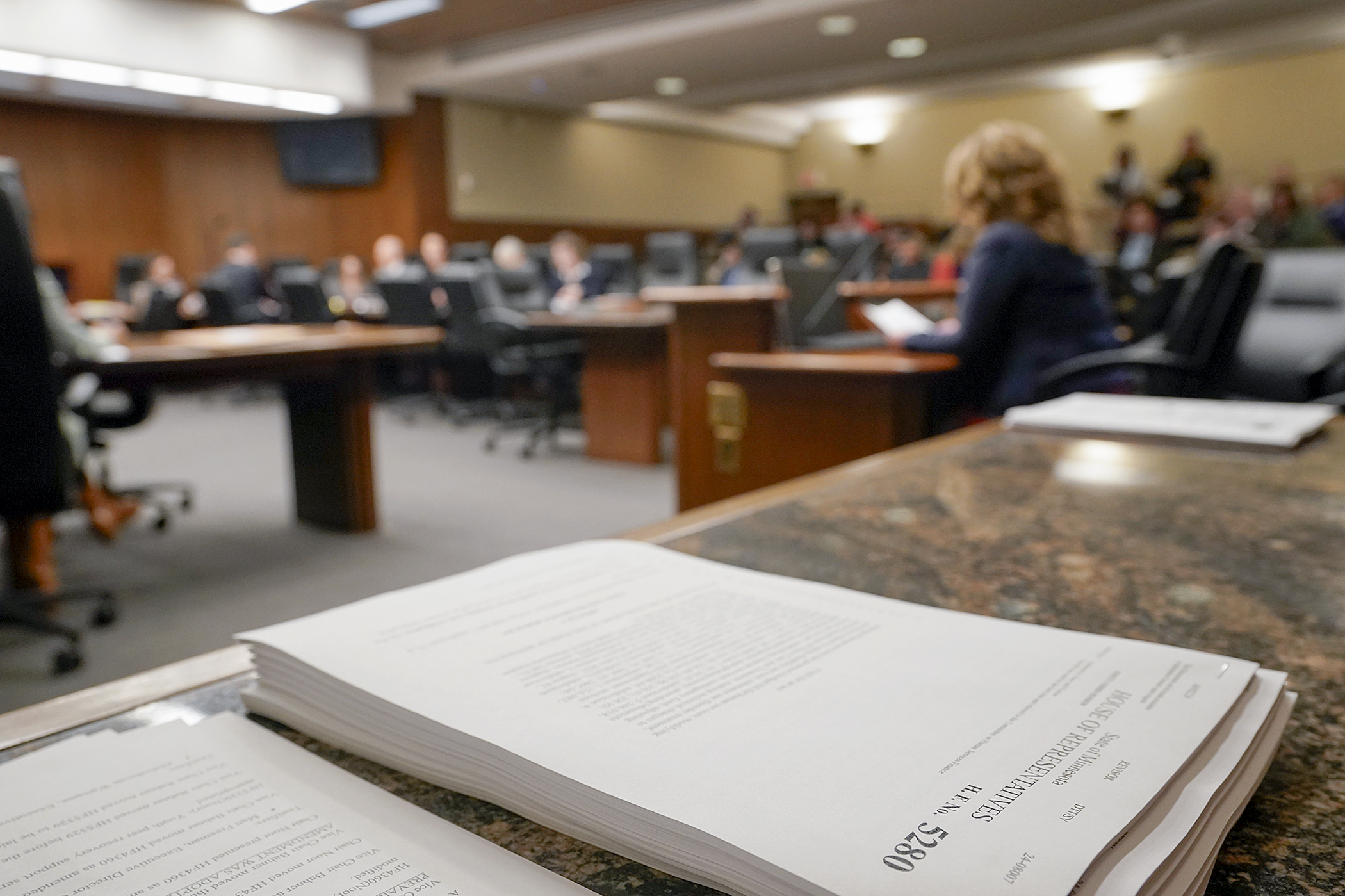Addiction recovery facility threatened with closure spared under proposed human services supplemental spending bill

The only all-woman residential substance use disorder facility in the state would be saved from closure if the supplemental human services finance bill meets with success.
The House Human Services Finances Committee was given a walk-through of the supplemental budget bill Tuesday and intends to act on it at its next hearing, slated for Thursday.
The 16-bed Community Addiction Recovery Enterprise in Carlton is slated to close July 1 as the Department of Human Services reallocates resources to add forensic mental health beds to the CARE facility in St. Peter. That facility provides care for individuals considered mentally ill and dangerous who have been civilly committed by a court of law.
Sponsored by Rep. Mohamud Noor (DFL-Mpls), HF5280, as amended, would no longer repurpose $1.72 million in fiscal year 2025 and $6.92 million in fiscal years 2026-27 from the Carlton facility, as originally proposed.
Last week members heard from several individuals and nurses concerned about the planned closure of the Carlton facility. Rep. Natalie Zeleznikar (R-Fredenberg Township) said she subsequently toured the facility with another representative and Department of Human Services staff.
“It was obvious to me how significant this is going to be for northern Minnesota, Greater Minnesota,” she said.
The funding bill would add eight beds for children, 10 beds for adults, and would allow hospitals to determine 10 priority admissions beds for direct care and treatment facilities.
“Are we going to be able to safely and adequately meet the needs of some of the most vulnerable people?” she asked. “My concern is if we don’t, they’re going to end up homeless.”
“Not at all. It’s just scratching the service,” said Human Services Commissioner Jodi Harpstead, noting that the state is experiencing a behavioral health crisis. “This is all we could do with the slim forecast this year.”
In total, the bill would appropriate of $42.13 million from the General Fund in the 2024-25 biennium and $14.86 million in the following biennium.
[MORE: See the spreadsheet]
Among many provisions, the bill would also spend an additional:
- $7.69 million on an expansion of a nursing home loan program;
- $7.18 million on forensic services;
- $4.88 million on reducing recidivism and preventing overdoses by helping individuals who qualify for medical assistance to enroll before exiting correctional facilities;
- $4.83 million to reimburse parents and spouses for providing personal care and assistance services;
- $2.45 million on direct care and treatment support services;
- $2.33 million on mental health innovation grants;
- $2 million to establish a human services response contingency account as proposed by the governor; and
- $1.2 million on a Dakota County workforce pilot program.
***
What’s in the bill?
The following are selected bills that have been incorporated in part or in whole into the human services supplemental finance bill:
Related Articles
Search Session Daily
Advanced Search OptionsPriority Dailies
Speaker Emerita Melissa Hortman, husband killed in attack
By HPIS Staff House Speaker Emerita Melissa Hortman (DFL-Brooklyn Park) and her husband, Mark, were fatally shot in their home early Saturday morning.
Gov. Tim Walz announced the news dur...
House Speaker Emerita Melissa Hortman (DFL-Brooklyn Park) and her husband, Mark, were fatally shot in their home early Saturday morning.
Gov. Tim Walz announced the news dur...
Lawmakers deliver budget bills to governor's desk in one-day special session
By Mike Cook About that talk of needing all 21 hours left in a legislative day to complete a special session?
House members were more than up to the challenge Monday. Beginning at 10 a.m...
About that talk of needing all 21 hours left in a legislative day to complete a special session?
House members were more than up to the challenge Monday. Beginning at 10 a.m...